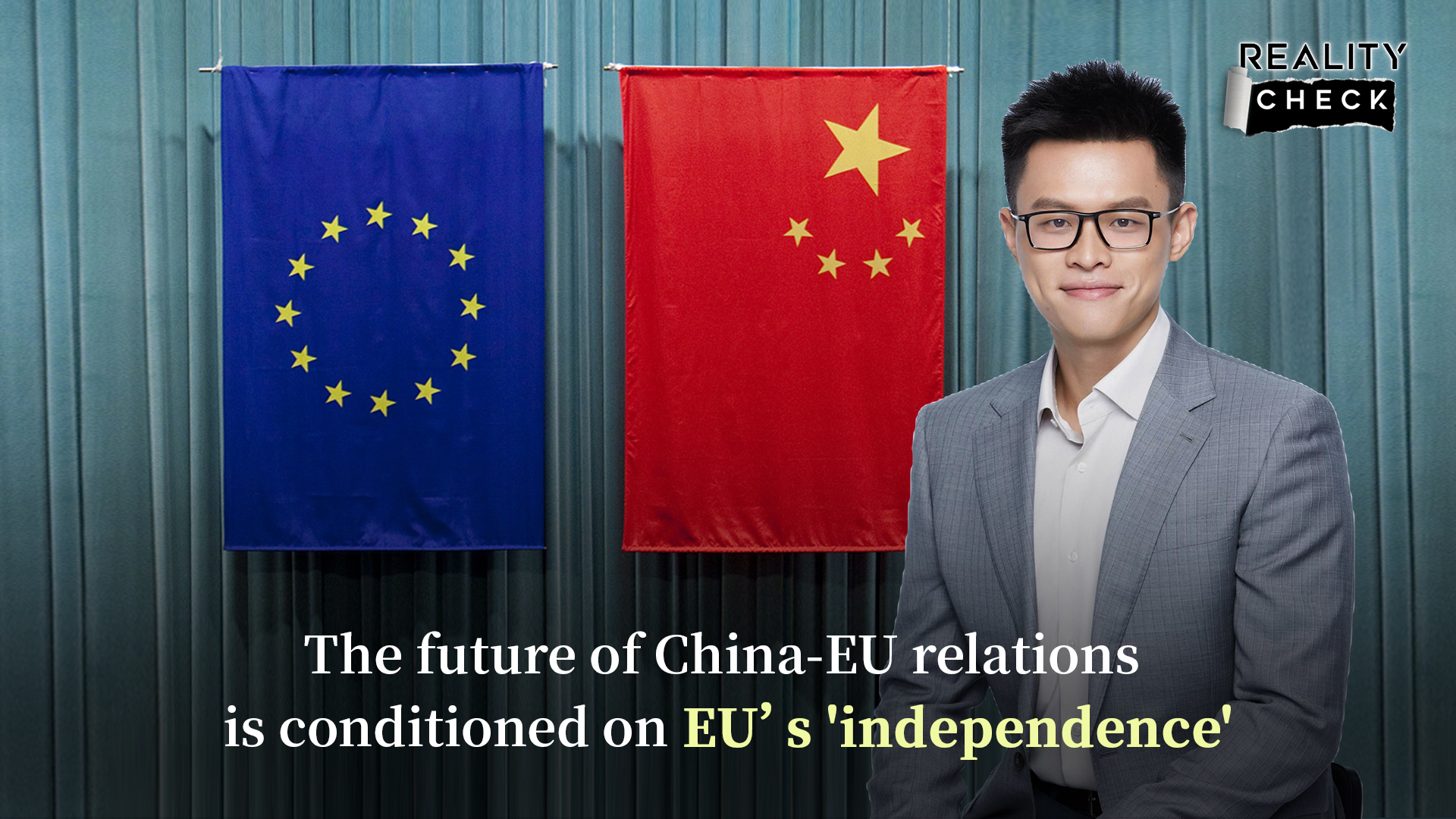Editor's note: During the 24th China-EU Summit, Chinese President Xi Jinping said that China and the EU should not view each other as rivals just because the systems are different, reduce cooperation because competition exists, or engage in confrontation because there are disagreements. How should China-EU relationship move forward at this new starting point? This episode of Reality Check answers this question.
On December 7, the 24th China-EU Summit was held in Beijing. Chinese President Xi Jinping told the two EU leaders that the China-EU relationship enjoys a good momentum of consolidation and growth. 2023 marks the 20th anniversary of the China-EU comprehensive strategic partnership, and this is a new starting point of China-EU relations.
But it is starting with a new reality.
Special Representative of the Chinese Government on European Affairs Wu Hongbo said in an interview that "there's a new idea on the European Union side, that is as you said, partner, competitor, and systemic rival. This is really confusing." He pointed out that "when we drive a car to a crossroad, then you are expecting one light. Either red, green or yellow. But now we have a strange situation. You have three lights on at the same time."
Back in April this year, I said that China and the EU are entering a "new breaking-it-in" period. This three-lights analogy is what needed to be worked at.
There's no doubt that China and the EU are partners, great partners even. Politically, there's the annual summit, five high-level dialogues, and more than 70 cooperation mechanisms. Economically, China and the EU are each other’s second-largest trading partners. In 2022, they traded on average 2 billion euros per day. Before the pandemic, they had more than 600 regular flights every week. And China just issued a visa-free entry policy for five European countries.
Competition and rivalry are tricky. Companies want to compete. That's how they make progress. The better products get bigger markets.
Jeffrey Sachs, professor at Columbia University, said that "China is a low-cost producer of photovoltaics. China is a low-cost producer of electric vehicles. So, China is going to sell a lot in the U.S. and European markets."
But competition can't serve rivalry, especially when that "rivalry" was manufactured to serve someone else. We've seen the EU doing that. The U.S. talked about decoupling; the EU came out with a softened version of it. The U.S. betrayed the one-China policy; some EU countries opened up offices in the Taiwan region. The U.S. doesn't like China having advanced chips; the Europeans curbed those exports.
China can't be dealing with an EU that's eager to toe America's line.
President of the Institute of Hungarian International Affairs Gladden J. Pappin believes that "we have to reframe the debate and realize that European strategic interests include being able to pursue more of its own foreign policy that depends upon a lot of factors and a real change in mentality and spending and economic and military development."
Eric Solheim, former Under-Secretary-General of the UN, said in an interview that "for 200 years, Europe and the United States, they have been very, very close. But in today's world, in many areas, Europe has as much in common with China. Europe and China are the main drivers of the environment progress in the world. They are the main drivers of a more peaceful world."
French President Emmanuel Macron emphasized that "for me, it's very important to have a much more autonomous Europe and European Union."
When the U.S. backed out of the Paris Agreement, Europe chose not to follow. It worked together with China to keep the agreement alive. As President Xi said at the summit, amid the increasingly turbulent international situation, the China-EU relationship has strategic significance and implications for global peace, stability and prosperity.
We should not view each other as rivals just because our systems are different, reduce cooperation because competition exists, or engage in confrontation because there are disagreements
And when the EU starts to call its own shots, we can add another layer of insurance to this relationship.
(If you want to contribute and have specific expertise, please contact us at opinions@cgtn.com. Follow @thouse_opinions on Twitter to discover the latest commentaries in the CGTN Opinion Section.)


